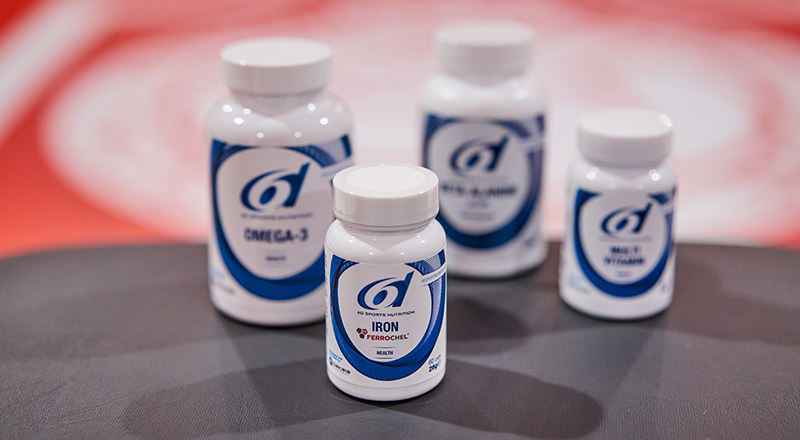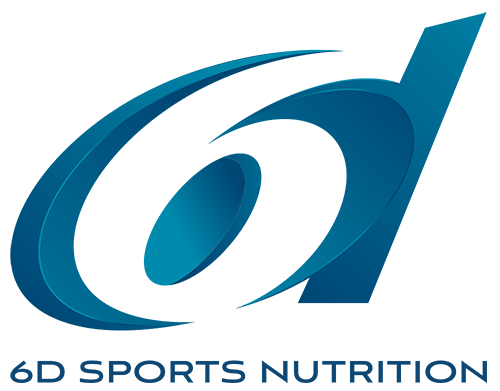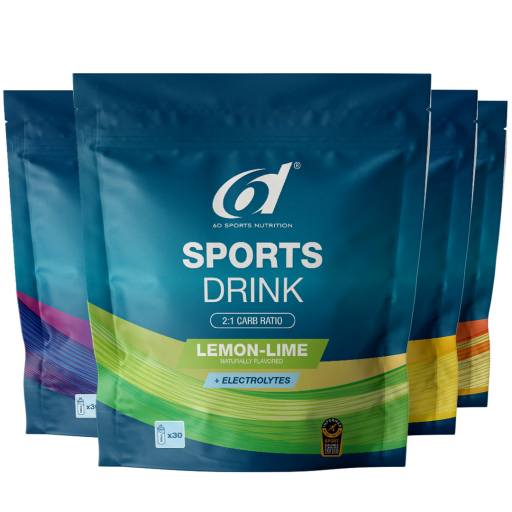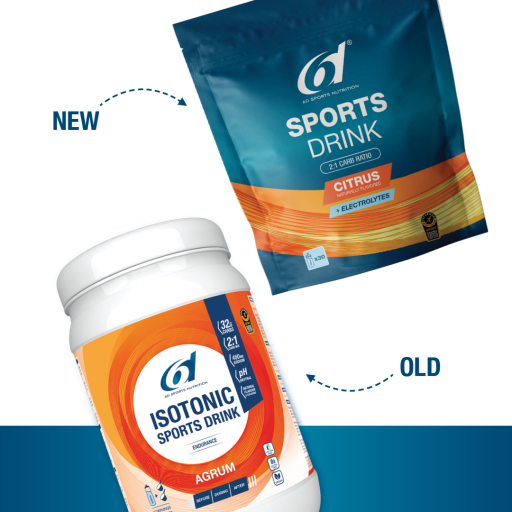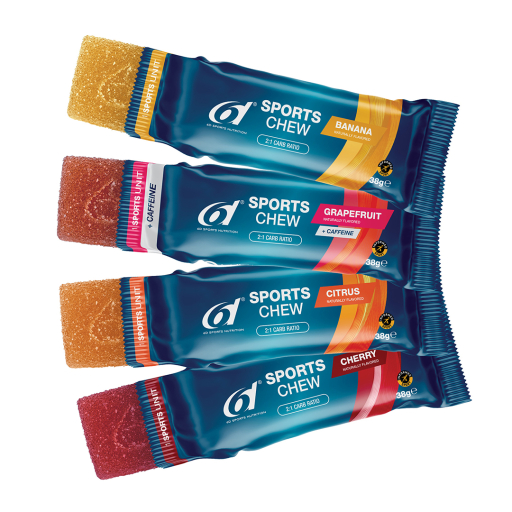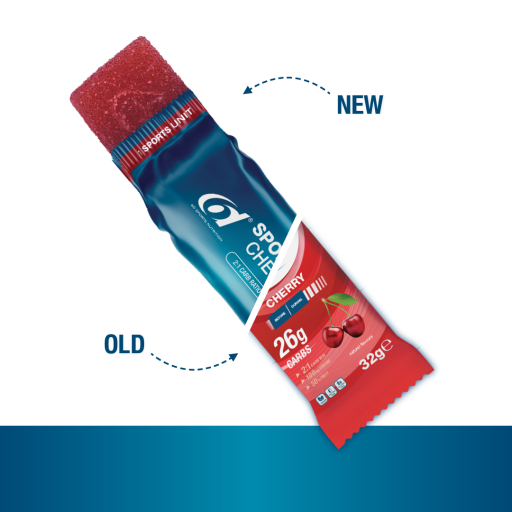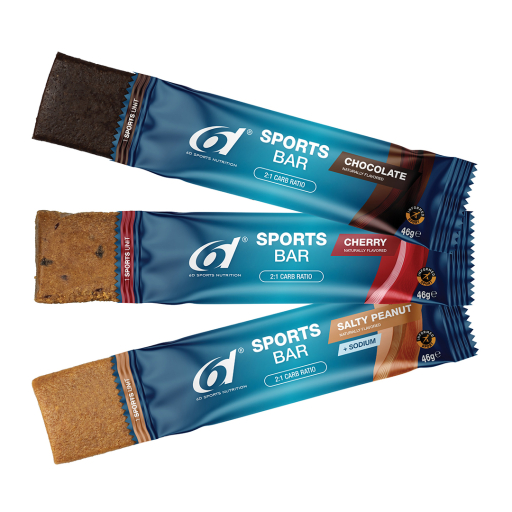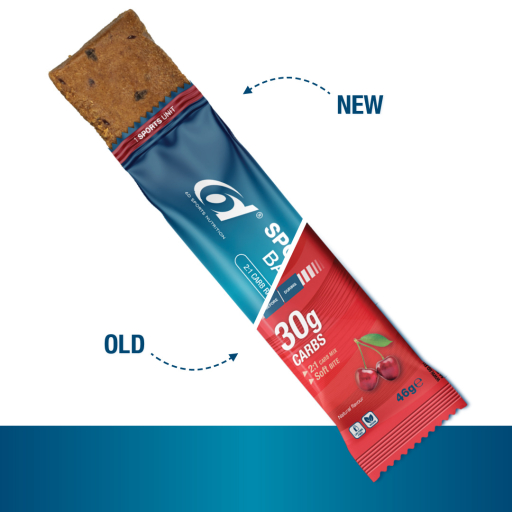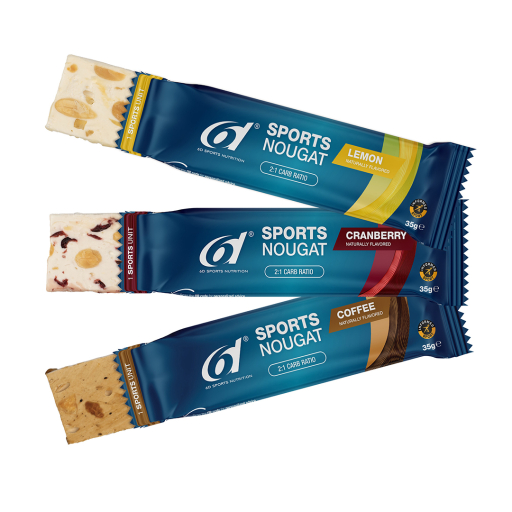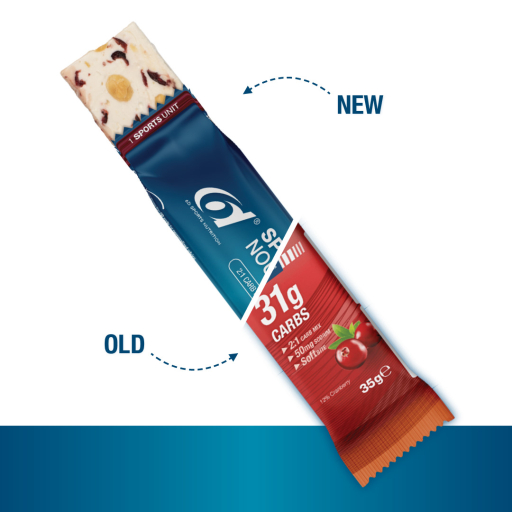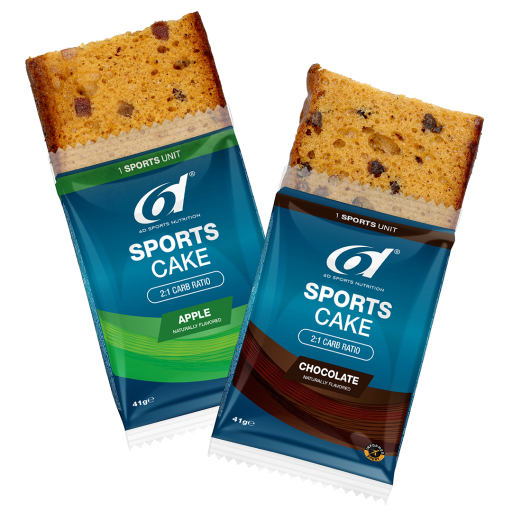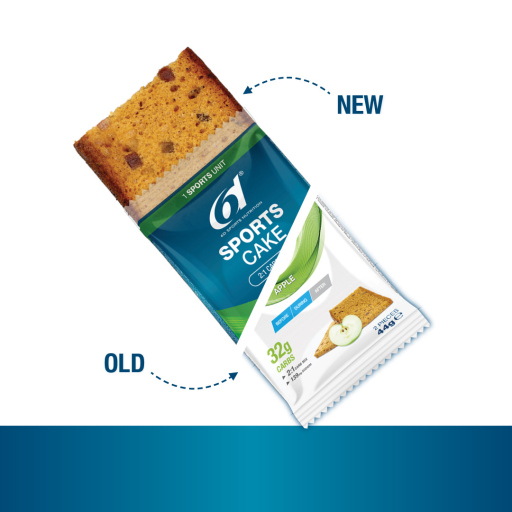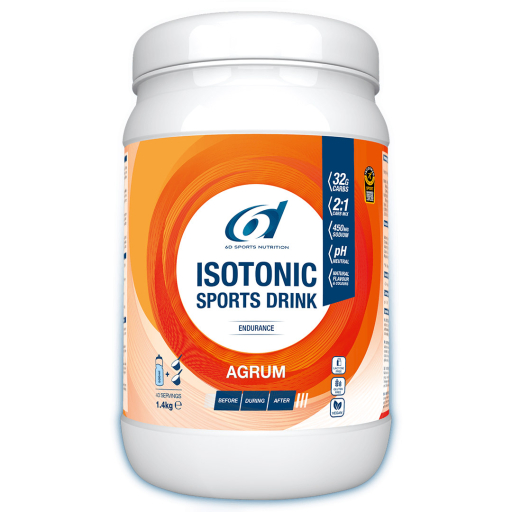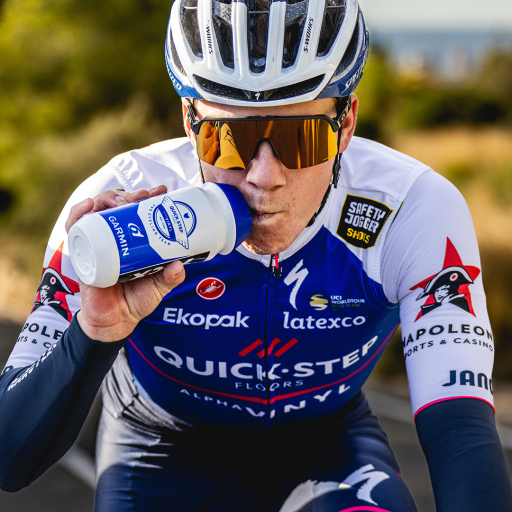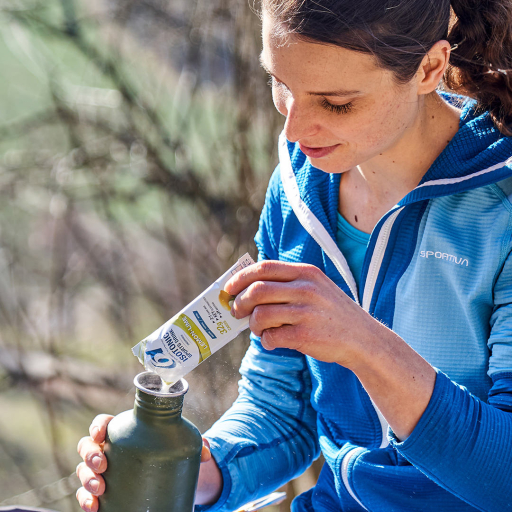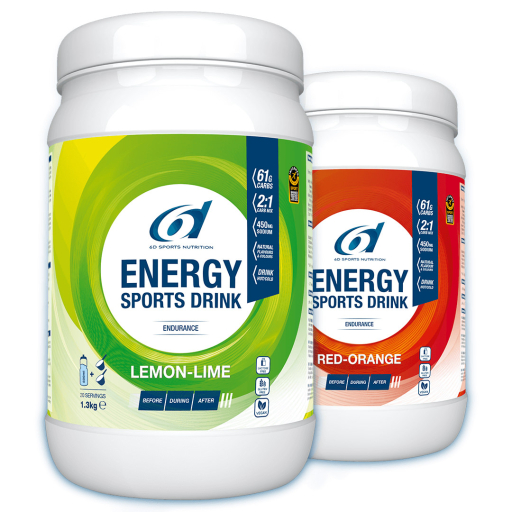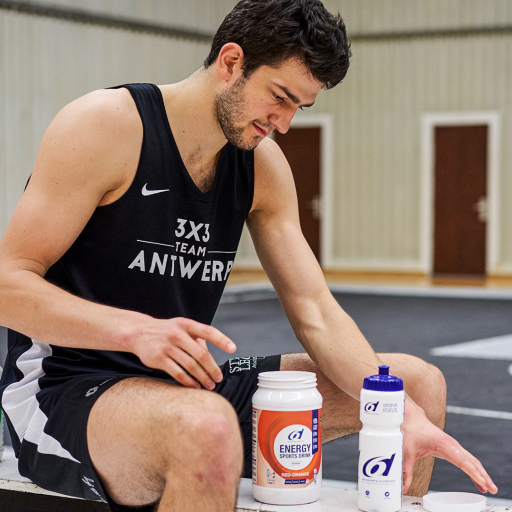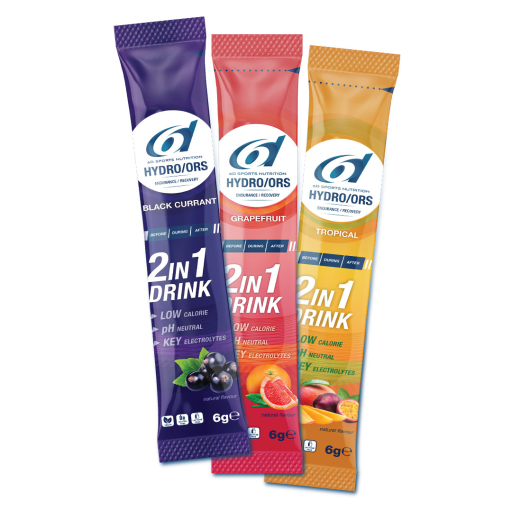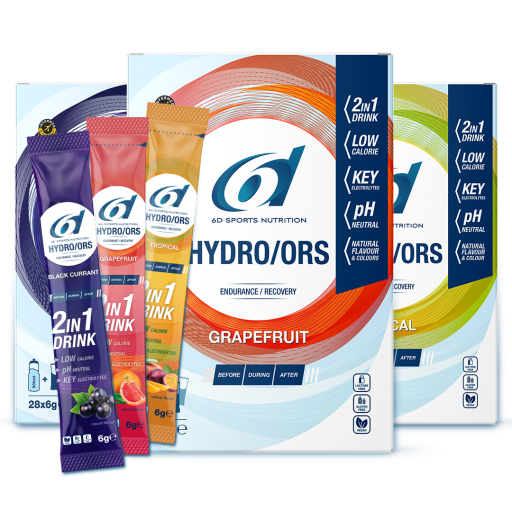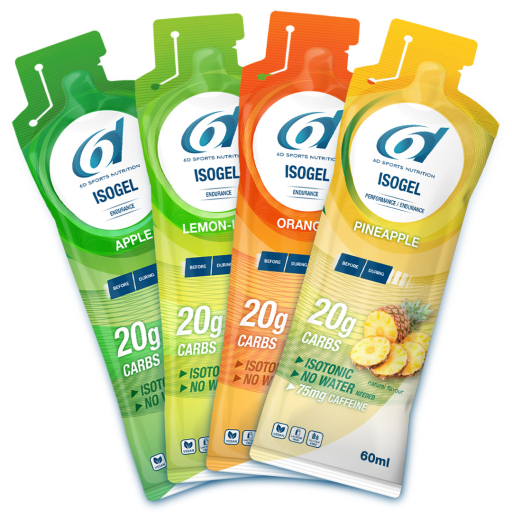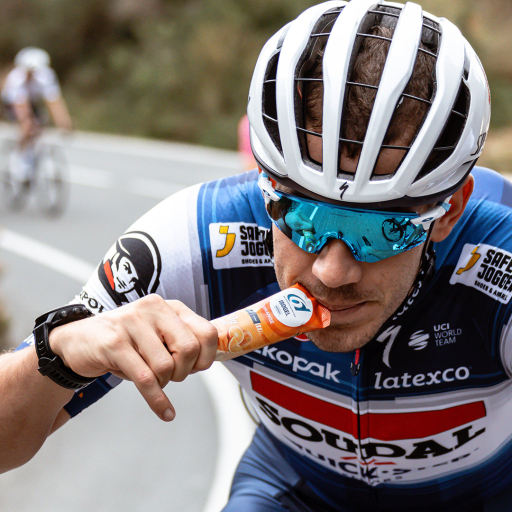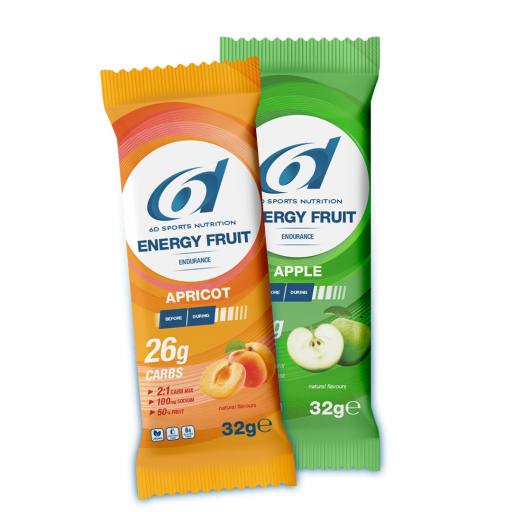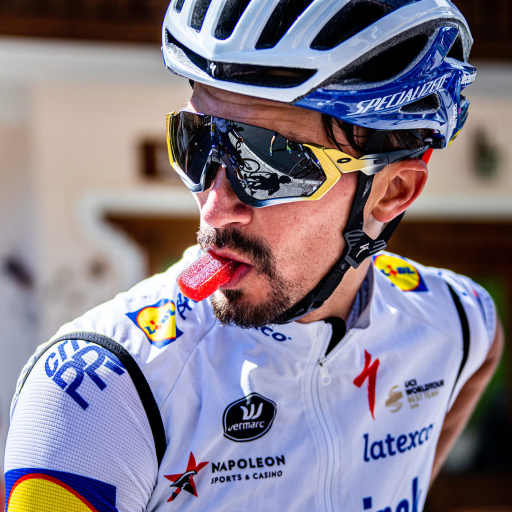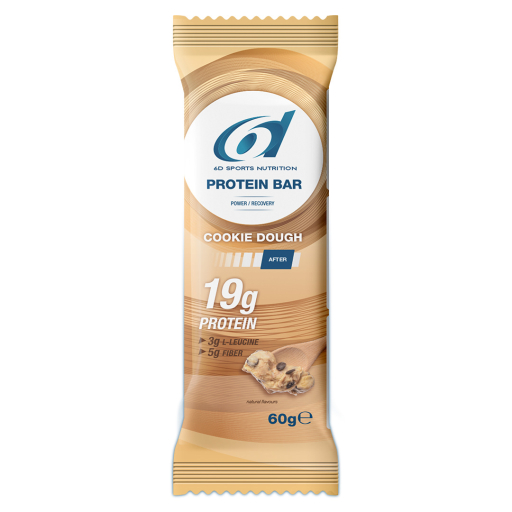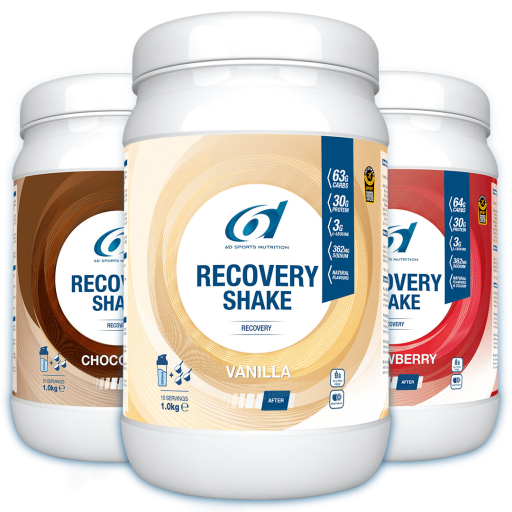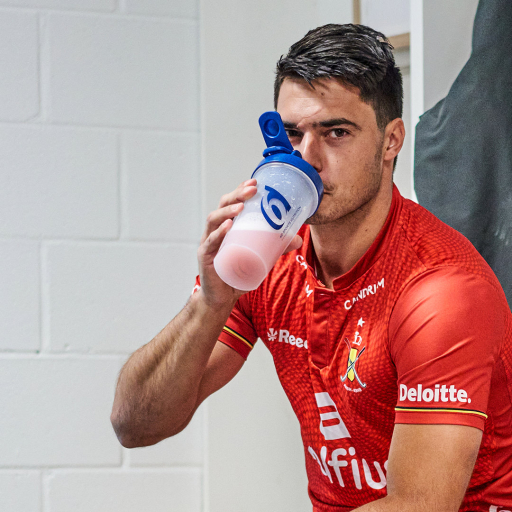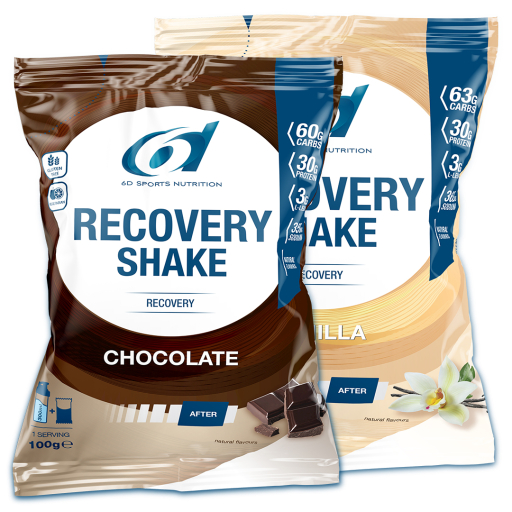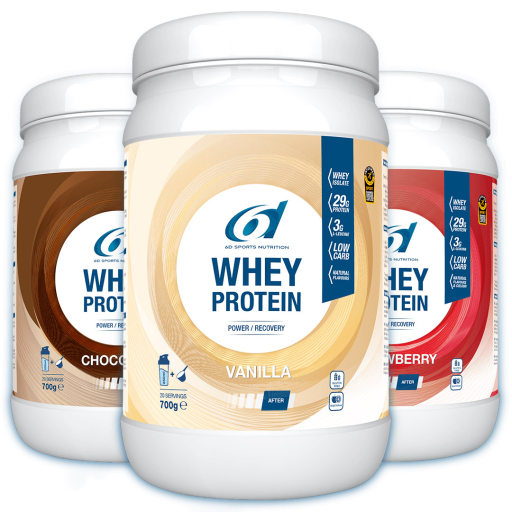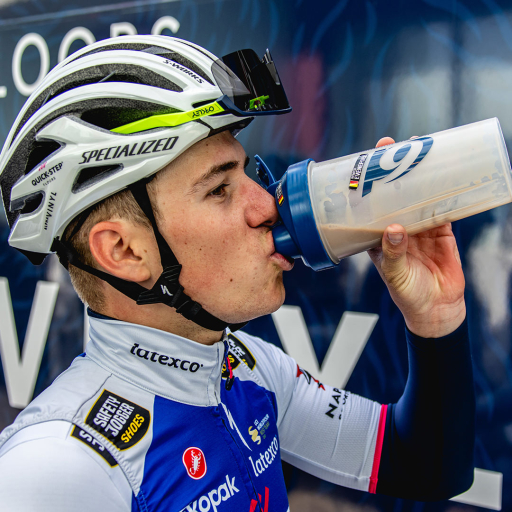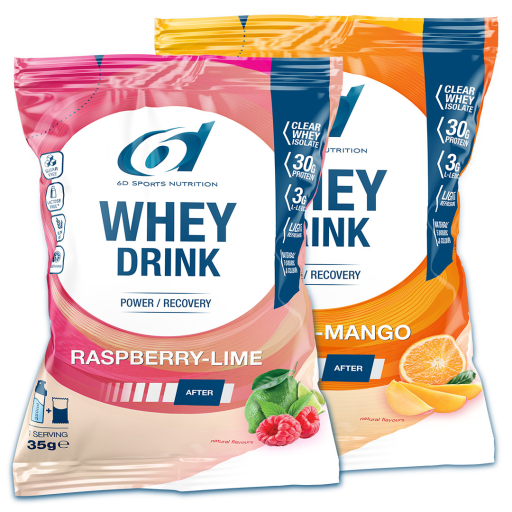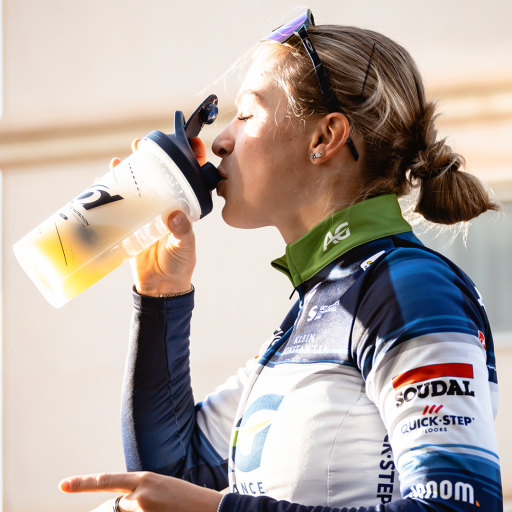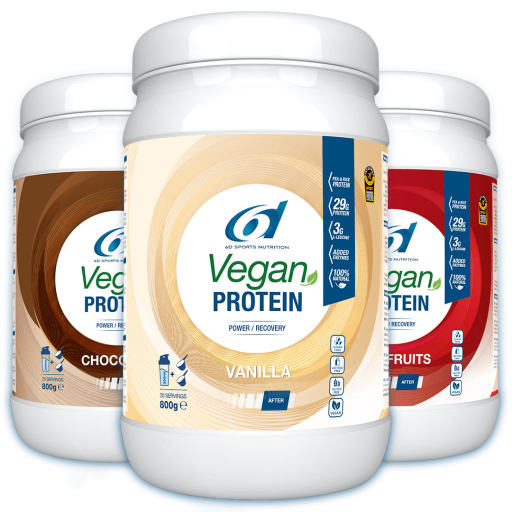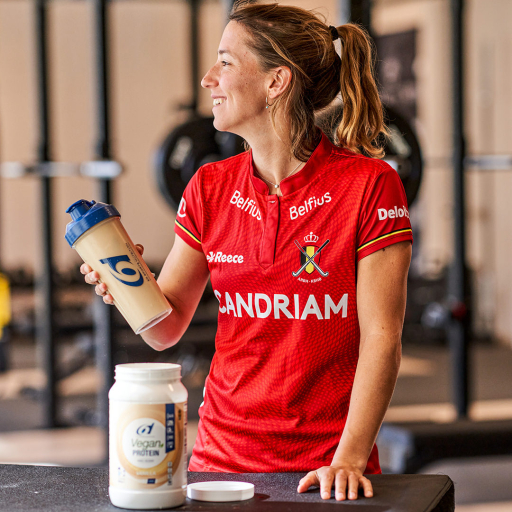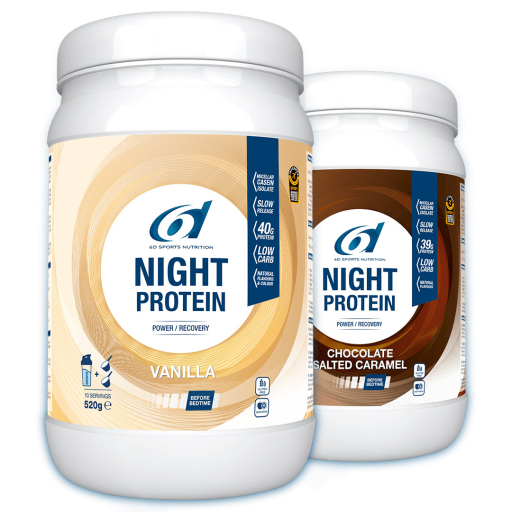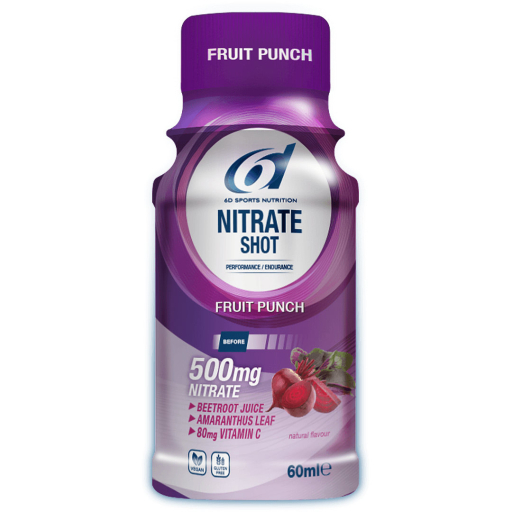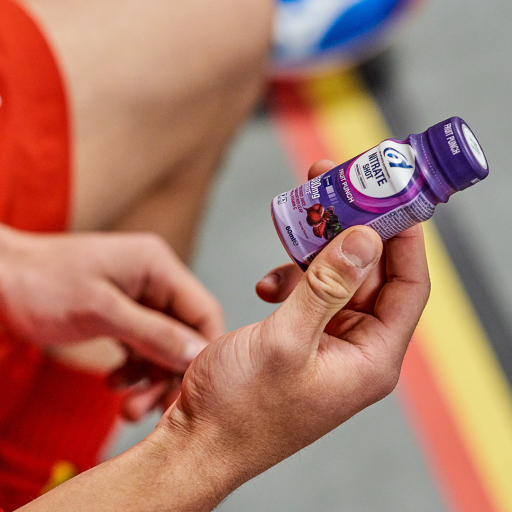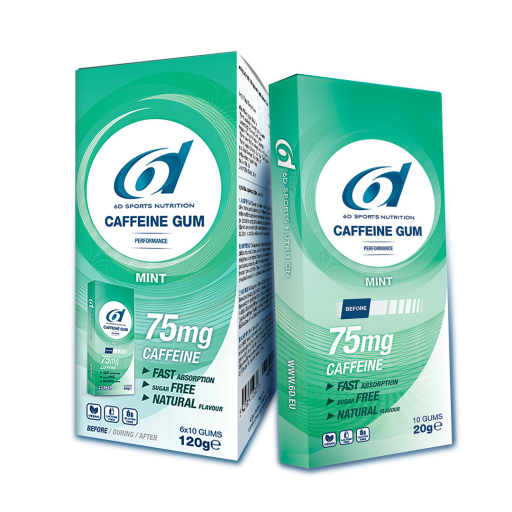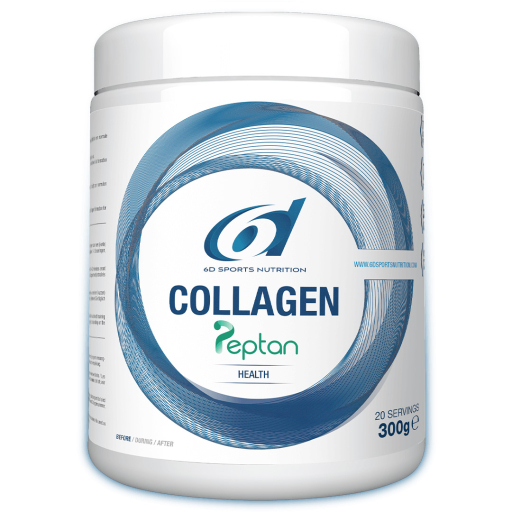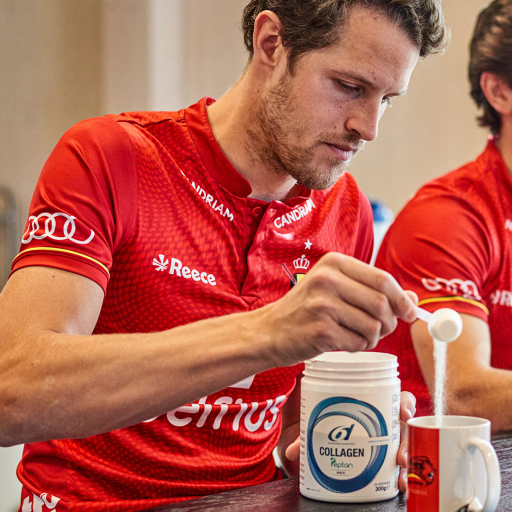Football
Football / Soccer
A well-thought-out nutrition plan is crucial for football players, both on training days and match days. Read below which products are best to take for optimal performance and maximum recovery.
Training nutrition for football players
Eating and drinking just before and during football training.
During intense training and matches, football players get their primary source of energy from carbohydrates, which are stored in the body in the form of glycogen. Yet this glycogen supply is limited, and only sufficient for 75-90 minutes of intense exercise. Therefore, when engaging in 1.5-2 hours of intensive field training, it is recommended to take 30g of carbohydrates just before, and/or during each hour of exercise in the form of sports drinks, gels and/or bars. Failure to do so will have a negative effect on your endurance, sprint performance and sport-specific skills such as dribbling, passing and shooting.
Choosing a high-quality sports drink is crucial, this way you will replenish your fluid and salt losses in addition to energy (carbohydrates). Drinking 150-200 ml every 15-20 min is often enough. Exactly how much you should drink depends mainly on your sweat loss and can be determined by means of a sweat test. During shorter training sessions (<60 min) like power sessions and less intensive sessions, like tactical training or recovery training, carbohydrate intake is often less essential. Nevertheless, a low-calorie sports drink like the HYDRO/ORS can be useful to replenish lost electrolytes from sweat, especially when these sessions take place indoors or in hot weather. HYDRO/ORS can also be consumed throughout the day to maintain fluid balance.
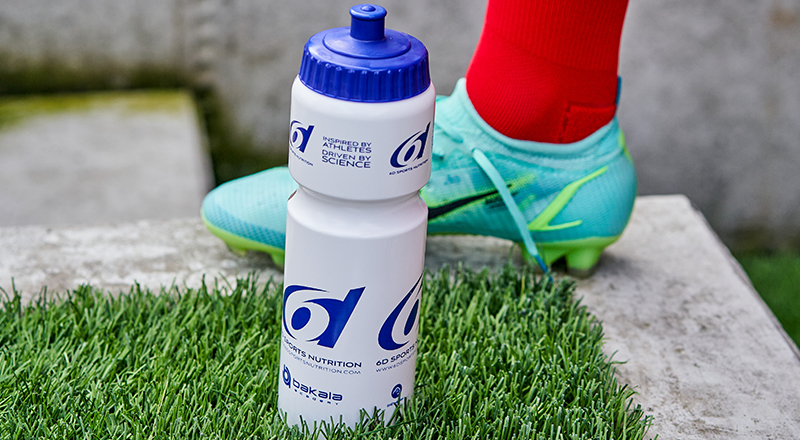
Recovering after football training.
Which protein shake is best after exercise for football players?
Besides an appropriate carbohydrate intake, the intake of the right protein also remains essential for football players. After training, the intake of 20-30g of fast-absorbable whey protein is advised for optimal muscle recovery. The WHEY PROTEIN is therefore preferred after strength training and less intensive field sessions, while the RECOVERY SHAKE is the best choice when simultaneous carbohydrate intake is desirable. For example, after an intensive field session with little recovery time (pre-season), after matches, but certainly also on match day - 1 as you then consciously want to increase carbohydrate intake in preparation for any competition.
Regular protein intake throughout the day is also important to optimise training adaptations and/or muscle building. Although protein-rich foods such as meat, fish, eggs, dairy and quality plant-based meat substitutes are preferred for main meals and snacks, the PROTEIN BAR or WHEY PROTEIN offer a practical alternative when needed.
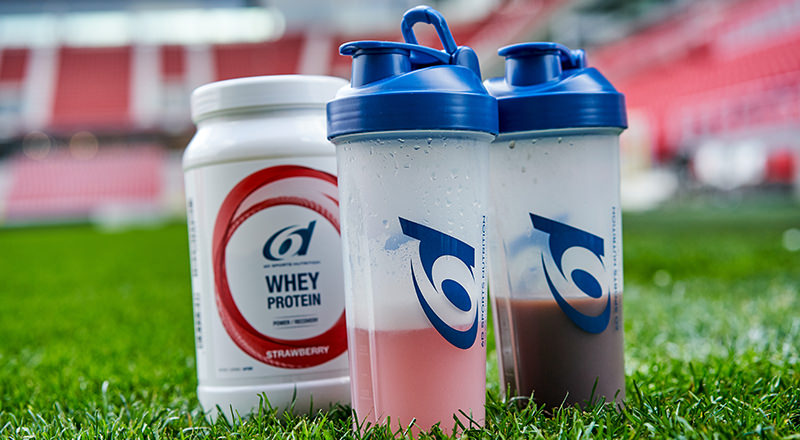
Milk protein before sleep for footballers?
A generous portion of milk protein, preferably 40g, before bed can also promote functional recovery during heavy training periods (pre-season) and intense match periods (2 games per week). Although you can get this portion of milk protein from 400g of high-protein yoghurt such as Skyr, a more compact and practical alternative such as the NIGHT PROTEIN is often preferred. Players who want to build or maintain extra muscle mass during an energy-restricted diet, regardless of injuries, also benefit from a daily portion of protein before bed.
COMPETITION NUTRITION FOR FOOTBALL PLAYERS
Match preparation starts as early as match day-1.
One day before the match, otherwise referred to as match day-1, is an important window to maximise carbohydrate storage in the body. Therefore, when selecting main meals, choose mainly low-fibre and high-carbohydrate foods such as breakfast cereals, white bread with sweet toppings, pasta and rice. Additionally, try to eat 3 carbohydrate-rich snacks such as an energy bar or a banana, regardless of whether you supplemented with a carbohydrate-rich sports drink such as the ENERGY SPORTS DRINK.
During races, it is not always possible to drink enough, so start on race day-1. A simple way to know if you have drunk enough is to check the colour and volume of your urine several times a day. Thirst also indicates that you are slightly dehydrated and need to drink more. So pay enough attention to your hydration and correct where necessary by drinking more regularly. An electrolyte drink such as the HYDRO/ORS can prevent dehydration better than water, especially in hot weather, as the salt in this drink will better retain the fluid ingested by the body.
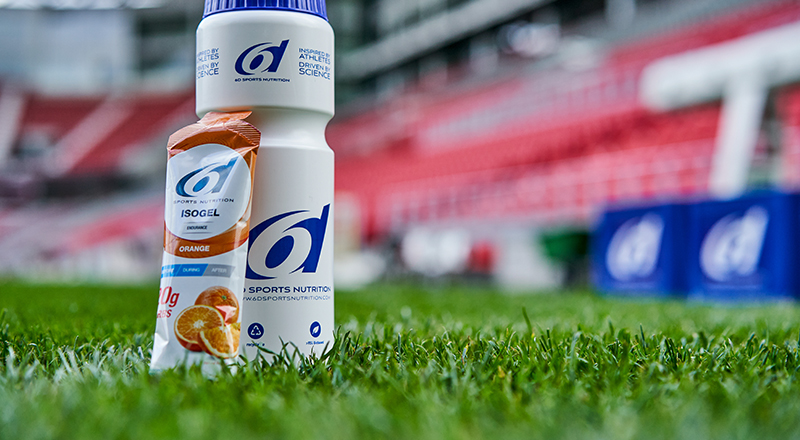
The right nutrition on match day
Provided proper preparation on match day-1, on the day of the match you only need to maintain carbohydrate and fluid reserves.
The last hours before the race
The last meal before the game (sports meal) is best eaten 3-4 hours before kick-off. With an early kick-off, this meal is the only meal before the match! This meal should therefore contain mainly carbohydrates (100-200g). For the sports meal, and the meal(s) preceding the sports meal, try to focus on easily digestible carbohydrate-rich foods to avoid gastrointestinal complaints, belching or a "heavy" feeling at all costs. Low-fibre breakfast cereals, white bread with sweet toppings, pasta and rice are again good choices while high-fibre and/or high-fat foods such as (raw) vegetables, nuts and seeds are best limited as much as possible. After the sports meal, you can also take a NITRATE SHOT if you want to give your endurance and sprint performance an extra boost.
It is also important to arrive at the kick-off well hydrated. A 500ml fluid with or just after your sports meal and another 500ml on the way to the race location is usually more than enough. In hot weather, you can add electrolytes like the HYDRO/ORS again. On arrival at the race venue, you can eat another easily digestible carbohydrate-rich snack such as a ripe banana or an energy bar, especially if you did not eat enough at the sports meal, or if you feel hungry.
Just before and during the match
Besides carbohydrates and fluid intake, the correct use of caffeine can also boost your performance on the pitch. Caffeine in a dose of 75-100mg can improve mental alertness while higher doses (150-300mg) are needed to delay fatigue. Caffeine is best taken just before the start of warm-up (+/-45 min before kickoff) so that you can enjoy the performance-enhancing effects from the start to the end of the game. Caffeine can easily be taken with a few CAFFEINE GUMS in combination with a caffeine gel.
After the warm-up, you should preferably drink 250-500ml of fluid in combination with 30-60g of carbohydrates. You can achieve this by opting for a sports drink possibly supplemented with an energy gel or bar. At halftime, it is important to repeat this as your carbohydrate stores will already be significantly depleted. A common mistake is that players do not adequately replenish their energy reserves at halftime, which will result in performance losses at the end of the second half. Often, that moment is just the difference between winning or losing! So don't get caught out and make sure you have a clear game plan! Also make use of game breaks to replenish fluid losses, especially in hot weather.
As a substitute player, it is also important to prepare well for any substitution. A good sports meal and adequate hydration leading up to the match and during the first half of the match is important. As a substitute, if necessary, it is best to take a few CAFFEINE GUMS when warming up, supplemented by a portion of carbohydrates in the form of an ISOGEL just before the substitution. Just before a raid or at extra-time it is very difficult to drink much, an ISOGEL is then the best option to absorb energy quickly with a low risk of gastrointestinal distress.
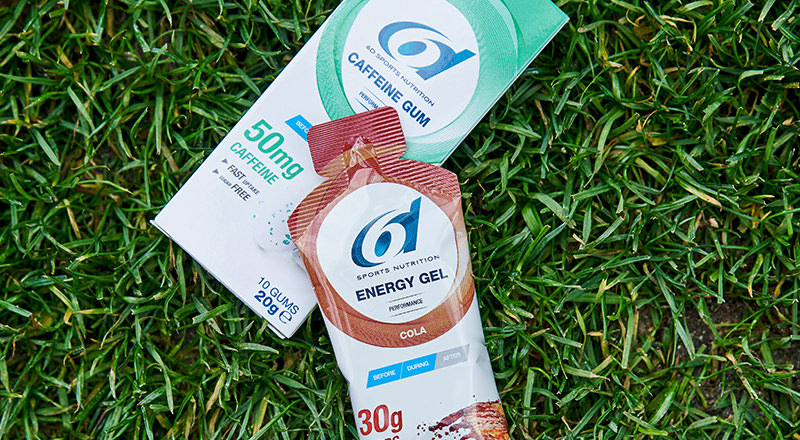
Recovering after the game and what if there are several games a week?
If you have to play several matches in the same week, it is best to take a RECOVERY SHAKE as soon as possible after the effort. This way, you will immediately get the right amount of carbohydrates and proteins. Then it is important to eat a recovery meal and hydrate sufficiently with, for example, HYDRO/ORS. Before sleeping, it is best to take a NIGHT PROTEIN shake so your muscles can recover optimally during the night as well.
Do you have a whole week to recover, are you a goalkeeper or a substitute who only played a limited number of minutes? Then a protein shake such as the WHEY PROTEIN or the VEGAN PROTEIN is often enough for you. If you prefer not to drink a shake after exercise, you can also use our PROTEIN BAR. Easy to take with you and delicious too!
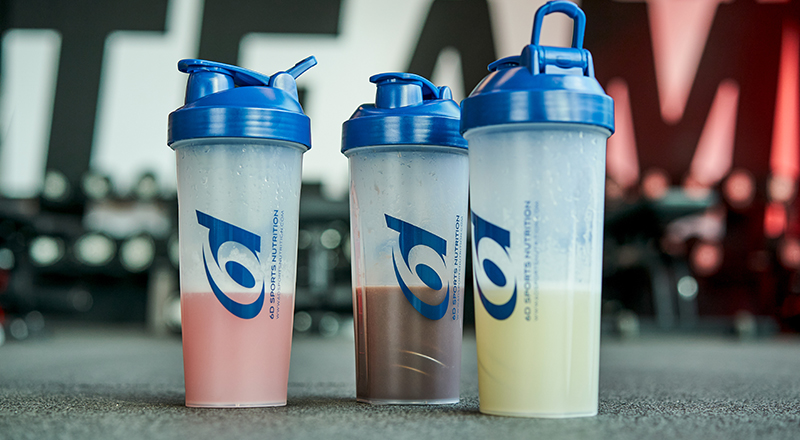
Do you often play several important matches a week? Then you may want to consider CHERRY JUICE as a supplement. This 100% natural sour cherry juice concentrate has a very powerful anti-oxidative and anti-inflammatory effect. Ideal for promoting muscle recovery during an important and intense competition period with little recovery time between races.
What are the best supplements for football players?
Besides NITRATE SHOT and CAFFEINE GUM, there are other supplements that can improve your football performance. These are mainly of interest to (professional) players working toward an important sporting goal. Do you often suffer from nutritional deficiencies, aches or pains? For that too, you can come to us with a wide range of health-supporting supplements.
